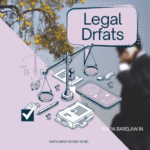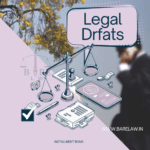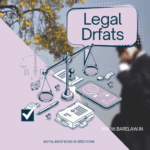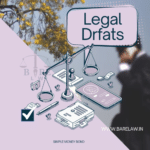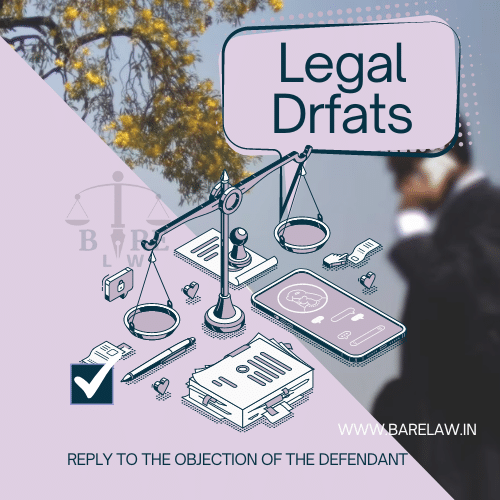
REPLY TO THE OBJECTION OF THE DEFENDANT
Table of Contents
IN THE COURT OF THE………………..
Suit No………………… of 19………………………………….
C. D…………………………………………………………. Plaintiff
versus
CF………………………………………………………. Defendant
The reply of the plaintiff to the objection to the defendant as to valuation of suit and court fee is most respectfully submitted as follows:
1. That the contents of Para 1 of the objection are correct and admitted.
2. That the contents of para 2 of the objection are wrong and denied. The Plaintiff has valued the suit on the basis of the annual land revenue multiplied by thirty times according to the provisions of the Court Fees Act.
3. That the contents of para 3 of the objection are baseless and simply to delay the disposal of the suit and the objection is liable to be dismissed with costs.
It is accordingly prayed.
Plaintiff
Through Counsel
Place:………………..
Dated:………………..
CASE LAW
Section 6
WHEN COURT MAY PASS DECREE BEYOND THE PECUNIARY LIMITS OF ITS JURISDICTION
(i) Where in a suit for partition, the valuation given by the plaintiff is such that the suit is within the jurisdiction of the Court in which it is filed, the Court can pass a decree in terms of an award of the arbitrator to whom the parties have, after the filing of the suit, referred the dispute in the suit, for arbitration, even though the award is for an amount exceeding the pecuniary jurisdiction of that Court1.
(ii) Where different suits are consolidated for hearing and the total valuation of such consolidated suits exceeds the pecuniary limits of its jurisdiction, the Court does not lose its jurisdiction to hear it by reason of the value of all the suits exceeding its jurisdiction2.
(iii)Where the valuation of a suit for accounts is within the pecuniary limits of the jurisdiction of the Court, the Court may pass a decree for a sum which is in excess of its pecuniary limit of jurisdiction3.
WHEN A COURT CANNOT PASS DECREE BEYOND ITS PECUNIARY LIMIT OF JURISDICTION.
A Court has no jurisdiction to grant reliefs which are not claimed in the plaint if by reason of their inclusion, the suit would be beyond its pecuniary jurisdiction4.
BASIS FOR DETERMINING THE VALUATION OF A SUIT
This section refers to the powers of a Court to entertain a suit on the basis of its limits as to pecuniary jurisdiction. As such it is basically the valuation given by the plaintiff in this plaint which determines such pecuniary jurisdiction and the Court proceeds on it; it is not the amount which the Court may find due or decree5.
“OTHERWISE EXPRESSLY PROVIDED”—MEANING OF
This expression means not the property involved in the suit but the relief which is claimed and it is its value that determines the jurisdiction of the court6.
MESNE PROFITS AFTER SUIT WHETHER EFFECT PECUNIARY JURISDICTION? (NO).
In a suit for recovery of property and mesne profits, it is the valuation of the immovable property and the mesne profits up to the date of the suit, which are to be counted for the purpose of deciding pecuniary jurisdiction of the Court and not the mesne profits which incur after the suit is filled7.
1. Mahadeo v. Hanumanmal, A. I. R. 1969 Raj. 304.
2. Jaya Krishna v. Bajrang Lal, A. I. R. (1961) raj. 1173.
3. Kalyan Das v. Ganga Bai, A. I. R. 1961 M. P. 67.
4. Nain Singh v. Mahendra, A. I. R. 1952 All. 196.
5. Ishwarappa v. Dhanji, I. L. R. (1932) Bom. 56: A. I. R. 1982 Bom. 111.
6. Chandi Charan Das v. Susila Bala Dasi, A. I. R. 1955 Cal. 144: 59 C. W. N. 606
7. Ganeshi Lal v. Snehalata, A. I. R. 1947 Cal. 68: 51 C. W. N. 136.
Barelaw, an online platform dedicated to delivering comprehensive legal knowledge, proudly presents its exclusive category of case briefs. This section is meticulously crafted to offer insightful analyses of landmark judgments, providing a valuable resource for legal professionals, students, and anyone interested in understanding the intricacies of law. Our case briefs delve deep into pivotal court decisions, exploring the rationale behind each judgment and its impact on the legal landscape.
We understand that navigating the complexities of legal judgments can be challenging. That’s why our case briefs are designed to be both informative and accessible, ensuring that readers gain a clear understanding of the key legal principles involved. Each brief includes a summary of the facts, the legal issue at hand, the court’s reasoning, and the ultimate decision. This structured approach makes it easier for our audience to grasp the nuances of each case.
Our website is a treasure trove of legal wisdom, constantly updated with the latest and most significant cases. Whether you’re a law student seeking to enhance your knowledge, a practicing attorney looking for a quick reference, or simply a curious mind eager to understand the law’s evolution, Barelaw is your go-to destination
Explore our case briefs and immerse yourself in the world of law. Visit our website now and discover the wealth of legal knowledge at your fingertips. The link is provided below for your convenience and direct access to our expansive legal database
You can access more legal drafts here – https://www.barelaw.in/legal-drafts/
